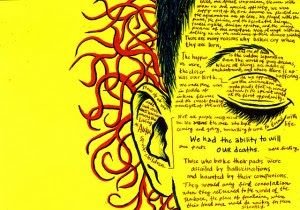A. Find the words from the text which mean the following. The first letter has been given.
a. making you feel physically relaxed; pleasant to wear, sit on, etc. c……….
b. having a degree from the university g……….
c. without being connected with or influenced by something or by each other i……………
d. the introduction of new things, ideas or ways of doing something i……….
e. familiar with something, having read, seen or experienced it a……….
f. a person who makes money by starting or running businesses, especially when this involves taking financial risks e………..
g. an opportunity or a place for somebody to express their opinions publicly or make progress in a particular area p……..
h. to use something, especially for a practical purpose u……….
Answer Key:
a. comfortable
b. graduated
c. independently
d. innovation
e. acquainted
f. entrepreneur
g. platform
h. utilize
B. The plural form of bacterium is bacteria. Irregular plural nouns are nouns that do not become plural by adding -s or -es, as most nouns in the English language do. Now, write the plural forms of the following nouns.
calf calves
basis basis
sheaf sheaves
cactus cacti/cactuses
louse lice
crisis crises
person people/persons
formula formulas/formulae
ox oxen
fungus fungi/fonguses
goose geese
oasis oases
analysis analyses
curriculum curricula/curriculums
appendix appendixes/appendices
Grammar
Present
Perfect and Past Simple
7SEL.COM
Present Perfect (S+has/have+V3…….)
I/we/you/they- have
He/She/It- has
Negative:
S+has/have not+V3+obj
Question: has/have+
sub+V3+obj
Past Simple
(S+V2+Obj)
Negative: sub+didn't+v1+obj.
Question: Did+sub+v1+obj
C. We use the past simple for past events or actions which have no connection to the present and the present perfect to talk about completed actions that have impacts on the present.
I lost my keys yesterday.
I’ve lost my key. I can’t find it anywhere.
D. We use both 'been (to)' and 'gone (to)' as the past participle of 'go', but with different meanings.
I’ve been to Muktinath.
Prem is on holiday. He has gone to Ilam.
Sarika is back home now. She has been to Jumla.
E. Use the correct tense of the verbs in brackets.
a. I don't know where Muna is. …… (you/see) her?
b. Janak …… (not/be) very well last week.
c, Last night I …… (lose) my keys. So I stayed in my friend’s home.
d. I …… (lose) my keys. Can you help me look for them?
e. I …… (know) Jamuna for three years. We still meet once a month.
f. She …… (live) in Sikkim when she was a child.
g. A: What’s wrong?
B: I …… (break) a glass.
h. A: When …… (you/arrive)?
B: At 10 pm last night.
i. How long …… (you/know) Sarmila for?
j. This is the first time I …… (drive) a car.
Answer Key:
a. Have you seen her?
b. wasn't
c. lost
d. have lost
e. have known
f. lived
g. broke
h. did
i. have you known
j. have driven
F. Use been or gone.
I have been: a completed journey in the past.
I have gone can refer to a journey from which the speaker has not yet returned.
a. I’ve never …… to Japan.
b. Kalpana has …… to Korea. She may come back next year.
c. A: Where’s Rachana?
B: She has …… to the shops.
d. Harina was here earlier but I think she has …… now.
e. Have you ever …… to London?
a. been
b. gone
c. gone
d. gone
e. been
Speaking
Narrating experiences and achievements
A. Study the following conversation.
Tenzing: Have you travelled a lot, Michael?
Michale: Yes, I’ve been to many places.
Tenzing: Really? Have you ever been to Darjeeling?
Michale: Yes, I’ve been to Darjeeling twice.
Tenzing: What about Rara?
Michale: No, I’ve never been to Rara.
B. Work in pairs. Take turns to ask and answer questions about experiences and/or achievements using Have you ever…? Give true answers about yourself.
a. going fishing b. doing yoga
c. winning a prize d. riding a horse
e. meeting a celebrity f. going to Switzerland
g. composing music





Comments
Post a Comment